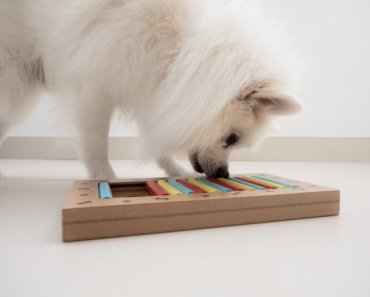Treatment for kidney disease in dogs and cats can include an impressive range of natural modalities, including ozone therapy, acupuncture, herbal medicine and more.
Kidney disease affects many dogs and cats, especially as they get older. Kidney failure in particular is a scary diagnosis for many animal parents. The seven natural treatments covered in this article can help support your dog or cat’s kidneys, improve his quality of life, and keep him with you longer.
KEEP IN MIND: Consulting with a holistic or integrative veterinarian is important when considering these therapies — he or she may not offer all of them, but should be able to refer you to someone who does.
1. MEDICAL OZONE AND ULTRA-VIOLET BLOOD THERAPY (UVBI)
These effective therapies support the kidneys in their ability to treat bacterial, viral, Lyme, leptospirosis and other infections. Overuse of antibiotics can actually cause kidney damage, so these medications should be avoided, especially when there are other options. Bacterial infections can be resistant to antibiotics, and these drugs also have no effect on viruses. However, medical ozone and UVBI have the ability to treat both these issues. Intravenous autohemotherapy with ozone, along with ozonated saline used subcutaneously over the kidneys, really helps.
2. ACUPUNCTURE AND AQUAPUNCTURE
Standard acupuncture points that support animals in chronic kidney failure have been in use for centuries. They include Bladder BL 23, Kidney KI 3, Spleen SP 6, Stomach ST 36, Pericardium PC6, Large Intestine LI 11, Governing Vessel GV 14, and Bau Hua. These points can also be injected with B12 by doing aquapuncture. You can even learn to massage these points yourself, or use a laser light pen on them.
3. HERBAL MEDICINE
Chinese herbal companies offer specific combinations of herbs that successfully support the kidneys. Some combinations work with the Jing (life essence) of the animal. Young animals with a low Jing or weak kidneys need long-term support.
KEEP IN MIND: Treating kidneys damaged by old age and injury is different from treating kidneys that have deficiencies from birth.
A variety of Western and Ayurvedic herbs also support animals with kidney issues. Companies offer different combinations of these herbs so it’s important to work with your vet before giving them to your dog or cat:
- Uva ursa
- Stinging nettle
- Astragalus root extract
- Rehmannia glutinosa extract
- Rhubarb extract
- Milk thistle
- Asparagus root extract
- Dong Quai extract
- Szechuan lovage root extract
- Cordyceps extract
- Ginkgo biloba extract
- Green tea extract
- Hawthorn extract
- Juniper berries
- Dandelion root
- Chicory root
- Crateva nurvala
- Marshmallow root
- Punarnava
4. HOMEOPATHY
Homeopathic remedies work to increase vital force and can be a good option for very weak animals. Some remedies can be used acutely, but having an in-depth analysis of your dog or cat done by a qualified veterinary homeopath can be very useful. Apis Mellifica, Arsenicum Album, Phosphorus, Aurum Muriaticum, and Cantharis are some homeopathic remedies that can help.
5. NUTRITIONAL SUPPORT
- Glandulars like desiccated kidney, or products that provide kidney support, are great additions to the nutritional routine. Cutting up a raw organic kidney from a cow, lamb or pig, freezing it, then giving a piece daily to the animal is another good option for supporting the kidney. Raw organic liver can also be helpful.
- High quality Omega-3 fatty acids bring down inflammation.
- Dimethylglycine DMG and spirulina are also helpful.
- It’s important to prevent further bladder inflammation that might proliferate into the kidneys, so keeping the dog or cat on some bladder anti-inflammatory herbs that are also nutritional is a good idea. Cranberry, marshmallow root, and Echinacea can prevent bladder infections from ascending into the kidney. Adding D-Mannose to the diet can help as well.
6. DIGESTIVE HELP
Probiotic products can assist with acute kidney issues. The gut contains around 80% of the immune system, so maintaining a healthy microbiome can bring tremendous positive changes to the animal. Appetite improves and their ability to produce more red blood cells seems to be enhanced.
Microbiome Restorative Therapy (MBRT) from young, vibrant screened donors with healthy kidney function results in increased vitality while lowering certain kidney-related values. Administering both oral support along with rectal Fecal Microbiota Transplantation is a good strategy.
KEEP IN MIND: There are 500 species and 1,000 subspecies of bacteria that could be viable in an animal’s gut. We need a balance to allow for the most efficient absorption of herbal medicines and nutraceuticals.
If you use only a prebiotic, probiotic or postbiotic, you don’t get the symbiotic meshing of hundreds of species. Establishing a full microbiome is a more complete way to reboot the gut.
7. BLOOD PRESSURE CONTROL
Diet and nutrition can be used to try keeping the animal’s blood pressure down. Adding natural diuretics such as parsley can help, and sodium intake may also need to be reduced. Encouraging more fluid intake is important for flushing the kidneys.
Otherwise, the animal’s blood pressure should be managed by medication, if and when needed. Certain medicines called angiotensin-converting enzyme (ACE) inhibitors and angiotensin receptor blockers (ARBs) can help control blood pressure.
Kidney failure and other renal diseases in dogs and cats don’t have to be a death sentence. Adding some or all of these alternative approaches to your own animal’s treatment regimen, under the guidance and supervision of your vet, can help give your beloved companion a new lease on life.




























